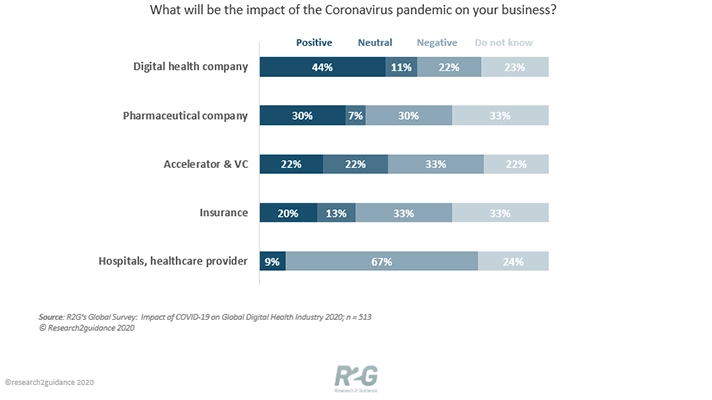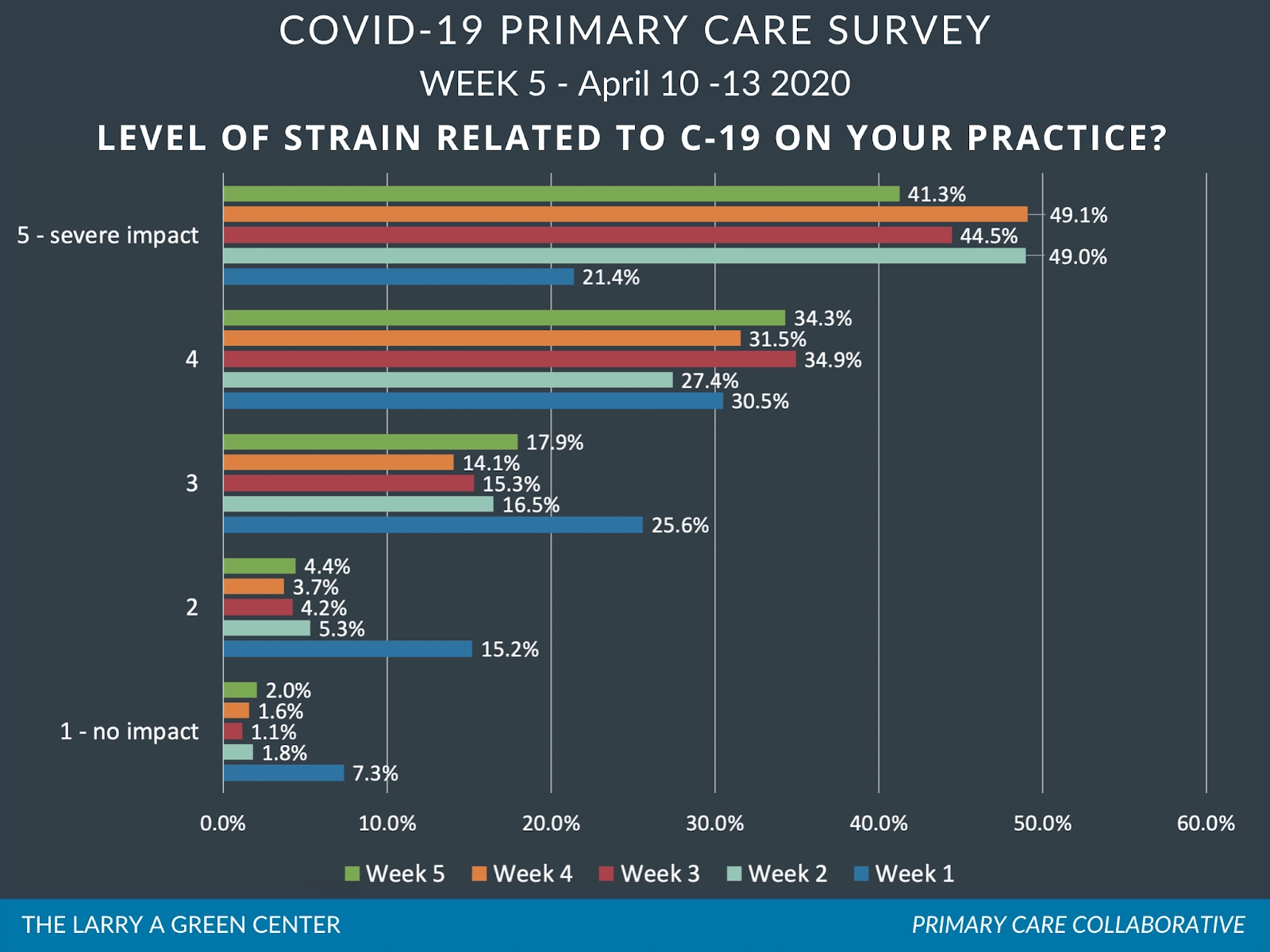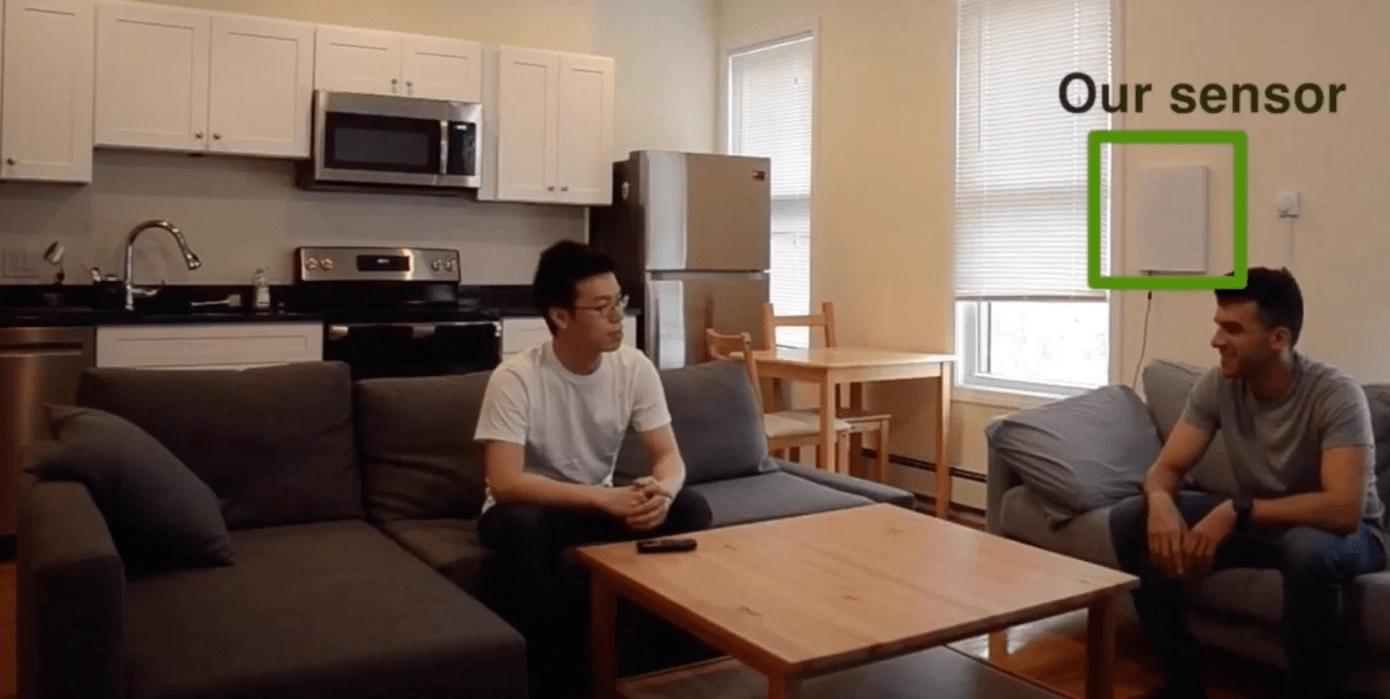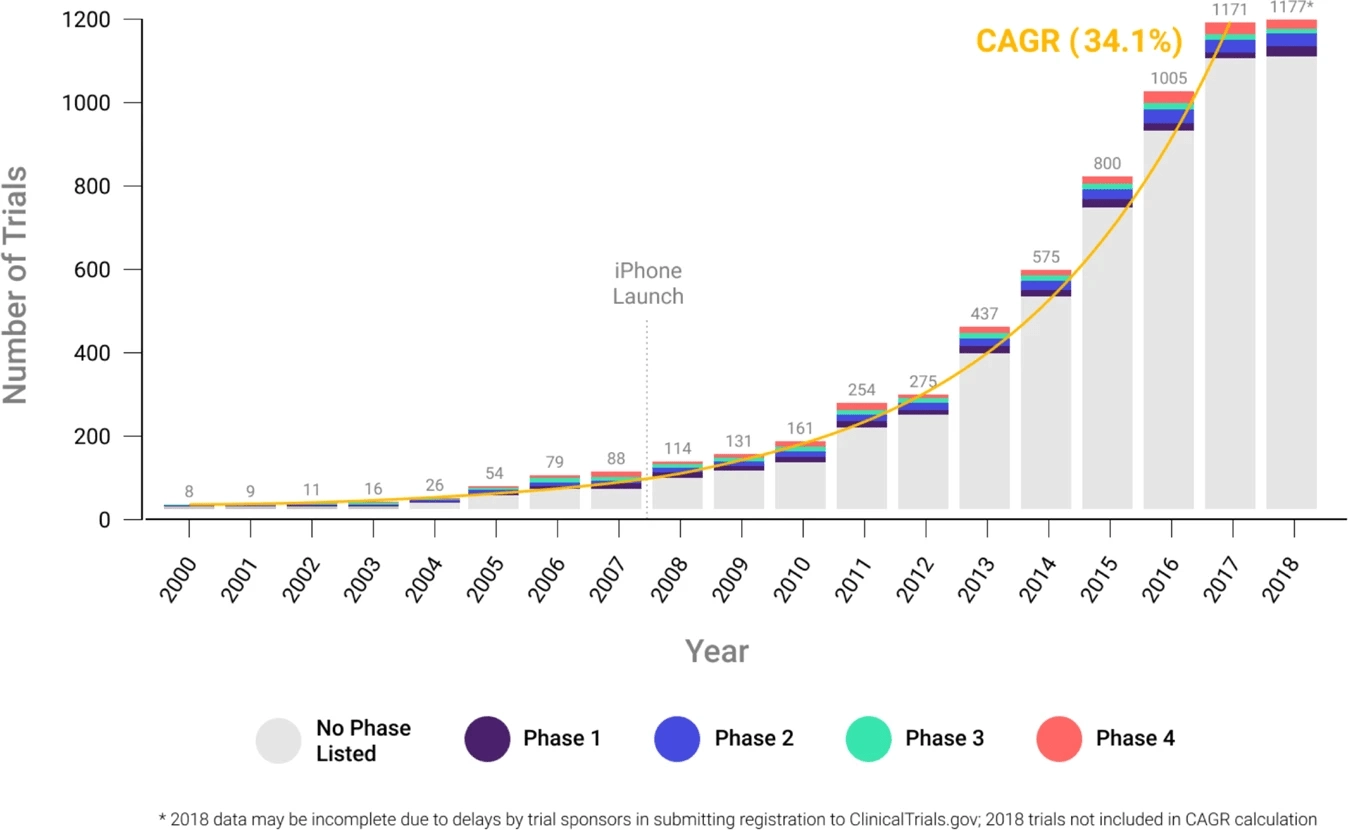

Digital healthcare digest — April 2020 (It’s All Outbreak Now)
Hey! Take a deep breath before we dive into challenges, successes and collaborations that happened in April in the digital health industry. It’s gonna be a tough one (we’ve tried to make it fun; let us know if we succeeded.)
About that funding in crisis - no need to panic yet
Bet you’ve been worried about the funding questions. It’s all better than fine for now — digital health funding jumped almost in half in this year’s Q2 — compared to the Q2s of 2019 and 2018. Who knows why, right? (In all honesty, though, not all of these startups are dealing with the issues caused by pandemic: there are some interesting unrelated products, for instance, a toilet seat that checks cardiovascular vital signs and telehealth platform with language services for those who’re not proficient in English, — go look at them.)
In general, digital health startups are very optimistic about how COVID-19 will impact their businesses. Research2Guidance gathered that via survey and presented their findings in WP, you can read it here. (Hospitals are not so happy. We’ll tell you, why.)

Beyond the digital healthcare industry, all best-funded startups of 2020 are indeed dealing with the pandemic. Check that Pitchbook research out, too.
How hospitals & physicians cope?
The number of physicians using telemedicine increased to 50%, compared to just 18% in 2018, according to the research from Merritt Hawkins. Also, 14% of physicians want to change their practice settings due to coronavirus. Good news for telemedicine (that is, as you’re seeing, an absolute winner of this economic pit), not so good news for medical employee recession.
Primary Care Collaborative’s survey shows: nearly 20% of primary care practices may close within the next months due to drop to zero in non-urgent care, but telemedicine services and virtual care may help. The survey is really, really interesting, so check it out (especially if you’re digital health products providers; it’s useful to hear from your clients.)

Italian Schiavonia COVID Hospital utilizes VR headsets from Limbix to improve the psychological and emotional staff of clinicians who work there. The technology behind the solution “teleports” people to places composed from libraries of Google Street View, so users could go where they were happy — and then they discuss memories they’ve chosen with an assigned physician.
Public Health England adopted a new system for managing a workforce to respond to scaling up, caused by pandemics. They used app-based tech from staff management firm Deputy for managers to stop doing scheduling and part of administration tasks. The system regulates schedules by weighing availability, qualification, and role of a required healthcare professional. Physicians can control their shifts through the dashboard, as well. Apart from other useful things, Deputy’s system incorporates touchless clock-in that was designed specifically for the pandemic: employees use facial recognition tech and voice commands to clock in and out of work.
Montefiore Health System in New York, which is one of the biggest hotspots of COVID-19, started using chatbots and coronavirus-screening solutions. During the first week of deployment, thousand of people already talked to a bot; a bot was also used to coordinate patients through the hospital’s website, to help them find FAQs and other info on the pandemic.
Quest Diagnostics will be offering a “consumer-initiated” COVID-19 antibody test for $119 through Quest Direct service.
Bolton NHS partners with Qure.ai to monitor COVID patients. Qure.ai’s solution is called qXR: it can detect findings from a patient’s lung condition analysis that are indicative of the infection and determine the volume of it.
TeamViewer will offer a remote assistance app for healthcare organizations in Australia for the pandemic.
How tech & government weaponize themselves to track the outbreak?
Apple and Google decided to team up (what a time to be alive, right?) to build health data-sharing and COVID-19 contact tracing tech to all smartphones they’re covering. They want to launch APIs that will be interoperable between iOS and Android; the release is planned to happen in May. Contact-tracing will be based on Bluetooth and is planned to be released later.
Additionally, Apple published a data set with anonymized information of people using their Maps app to show changes in people’s mobility on the country, regional, and city levels.
Google, on the other hand, launched a website, focused on coronavirus updates in India, and aligned its search mechanisms and YouTube to display info from authorities and locally relevant details about the pandemic in the country. They also show more than 1,5 thousands food and night shelters on Google Maps to help migrants find a place to stay during the lockdown.
Food science startup Zoe and their academic partners developed a free app — COVID Symptom Tracker — for iOS and Android to help American residents understand and contain coronavirus. The app has already been used at scale in the UK. Such efforts can help identify clusters of infections and determine high-risk and high-spread areas of the virus. The app is protected by GDPR and used for non-profit purposes exclusively, e.g. for public health and research.
Such an app for self-reporting was also launched by Pinterest — Facebook also contributed, releasing a mapping survey from Carnegie Mellon University’s Delphi epidemiological research centre as a pop-up.
Facebook also rolls out three maps for tracking the pandemic within their Data for Good program. First is the co-location map that will help figure out the net of probability for a user to interact with people with the virus. The second is the movement range map that will show if people are staying at home. The third one is “Social Connectedness Map”, and it is Facebook friends-focused; users would be able to use it to understand where the disease could be spread — and to find help in communities if needed.
Bahrain launches electronic bracelets to track coronavirus. They’re connected to Bahrain’s app BeAware that is used for tracing the infection. People with the virus or those who have been exposed to it must be connected to the app all the time. Their location is being tracked by GPS. Sometimes, the government would ask them to take a photo that clearly shows their face and a bracelet. Violations are penalized.
Tracking COVID-19 is essential for countries to conclude the quarantine. Recently, European Commission released a plan for the path “towards the lifting of containment measures.” Appropriate monitoring capacity included a need for digital tools to be used to report and trace contacts (it’s been said that such solutions should fully respect people’s privacy.) Some countries though aren't exactly into the idea of that, so they offer, for instance, full-time GPS trackers.
Australia’s government has also already launched COVID-tracing app, and it was downloaded 2 million times within the first day of launch.
Mental public health is having the worst day
That’s why — big news. FDA lifted limitations for developers of physiatric-centered digital health products: now they can release their apps without 510(k) submission. The reason: mental health in a pandemic is not great. Especially for neurodivergent people.
Thanks to the FDA opening a road for digital health physiatric products, Akili launched their video game-like app Endeavor for children from 8 to 12 with ADHD.
Mental health surges up, too: SounderMind, a startup that gives mental health specialists tools and back-office services to work with insurers, while connecting patients to therapists who “match” their health plan, raises $24M.
Hims, a startup consumer health brand that provides out-of-pockets healthcare services launched services for group therapy as a part of trying to enter the digital mental health space. The CEO of the company called this move “the simplest leap [Hims] made,” as pandemic calls for a focus on mental wellbeing.
Servelec, a digital care software developer, and Berkshire Healthcare NHS Foundation Trust, released Mood Diary App for mental health management. Data, entered in the app, integrates with Servlec’s Rio EPR system as part of the patient's clinical data.
Intellect — Singapore-based digital health company — launches a CBT-based app that works without human intervention, which is great for the local market, considering the fact mental health services are still heavily stigmatized in Asia.
Netflix launches a new Instagram-based series - about the importance of taking care of young people’s mental health in a time at least half of us really struggles with that.
How researchers & inventors help?
Startup accelerator program Creative Disruption Lab launches a COVID-dedicated branch, called CDL Recovery, to help in transforming scientific work into scalable products to address the consequences of the pandemic.
Architects (in particular, Operation PPE and other initiatives) will help manufacture protective equipment like face shields and masks using their skills and 3D printing. Despite the fact it’s not actual medical equipment, it’s far much better than hand-made masks and bandanas doctors in hospitals where first thousands of masks have been distributed to.
MIT developed a wireless box (“set it and forget it” style, according to developers) that can detect COVID-19 patients’ movement and breathing at home — for remote care. Which sounds both super creepy and super cool. The system is being tested at the Heritage Assisted Living facility, among senior patients.

Shortages take their toll on healthcare systems all over the world, so researchers from Cranfield University (UK) and Georgia Tech and Emory University (USA) collaborated to develop emergency ventilators for continuous care for COVID-19 patients via repurposing resuscitation bags, usually carried by ambulances.
At-home diagnostic startup Scanwell started a 1000-persons study for their COVID-19 antibody tests.
Who feels great?
Telehealth, remote monitoring tech developers, and virtual care companies. Personally, we’re very glad they do, because they have the tools to protect both patients and physicians while helping the latter continue the practice.
A new poll, distributed by Lightico, a digital customer experience platform, shows that four in five respondents (from 1000) would attend remote health consultations and would prefer an online visit to an offline one. Part of the demand might be explained by respondent’s positive experience with these services — apart from the obvious pandemic threat.
Healthcare Communication, a digital patient communications supplier, will offer their eClinic software to healthcare teams all over the world for free. It’s a platform for virtual consultations, care coordination, and communication — with patients, and between clinicians.
At the same time, Doctor on Demand made telehealth services related to COVID-19 free for uninsured people.
AIA Thailand, a branch of the largest pan-Asian life insurance group, partnered with True Digital Group, a leading communication conglomerate in Thailand and Samitevej, launched a Virtual COVID-19 Clinic. It was created to help people with symptoms of COVID-19 or people who have a high probability of having contact with high-risk people.
Another monitoring solution (this time, for hospitals). Shanghai Public Health Clinical Center (or SPHCC) started using a continuous temperature sensor to monitor coronavirus patients - so doctors and nurses are less exposed to the infections. Recently, the clinic started using Cassia’s solution for IoT access control to get data from the sensors and 40 Bluetooth Low Energy devices and monitor multiple patients in real-time mode.
Tyto Care from Israel gains $50M of funding. They develop digital tools for telehealth and remote monitoring; the overall experience is about patients doing exams at home, while guided by a physician via a virtual care platform.
XRHealth gains $7M to expand more to battle the outbreak (last month, they’ve launched VR clinics.)
98points6 raises $45M to triple their physician pool and answer the demands that appeared due to the pandemic. It’s a text-based primary care venture that connects customers to health plans, and then to practitioners they need via AI.
SteadyMD, a telehealth service that is focused on primary care and positioned as a place for building long-term relationships with physicians, raises $6M in Series A.
Medici’s app-based telehealth platform also gains $24M in Series B.
Amwell (form. American Well), a telemedicine company from Boston, announced new virtual health offerings for small and medium-sized practices with less than 100 providers, increasing, in such a way, accessibility of healthcare services and safety for physicians.
Hackers went bloody wild
Remember hackers promised to back off from hospital during a pandemic?
Well, apparently those who decided against it are giving healthcare proper hell: via ransomware, phishing threats, and other cybernastiness (like selling face masks and coronavirus tests for unreal prices).
Among others, Parkview Medical Center hospital in Colorado was hit with a ransomware attack that shut down several parts of their IT infrastructure.
Hackers especially heavily concentrate on getting access to people’s data through credentials in Zoom and Skype. Use complex, unique passwords for everything related to patients’ data (or any data, actually). Beware of suspicious letters, free VPNs services, and, in general, check out this article. Cyberhygiene is also important.
NSA shared cybersecurity tips for people working remotely, and combined with telework guidance provided by AMA, they can be used to protect practitioners who organize patients’ virtual visits while home — or even lead telemedicine-based care.
CyberMDX raises $20M to enhance the cybersecurity of hospitals’ medical devices. Their software gives providers a quick network that detects intrusions and proactively identifies risks concerning medtech that belongs to them.
TrialScope launched a free website for people to check credible clinical trial info in COVID-19. Because no to misinformation, that’s why.
Data exchanges for research purposes
New HHS rules aka final interoperability rules will be added to the Federal Register very soon. They encourage data exchange via APIs, especially via FHIR-based APIs. In general, 28 companies collaborate on an EHR-based COVID-19 database: with it, professionals from different sectors of healthcare can track data, use it to evaluate drug efficiency, improve decision making, and so on. (Cerner and AWS partner to make COVID-19 data available for scientists and researchers among them.)
The Regenstrief Institute and a few partners from Indiana launch Network for Population Health. Within this network, they plan to securely store data about people’s social determinants of health like housing, access to food and water, and so on — and make it available for researchers to address.
Is there anything that’s NOT about coronavirus?
Actually, yes! For instance, ResApp launches SleepCheck - an app to screen sleep apnea at home, that doesn’t require additional hardware or wearables. It analyzes users’ breathing and snoring sounds to do so.
Another company — Withings from France — developed and launched a sleep-tracking mat. Users would place Sleep Analyzer under the mattress for its sensors to analyze snoring sounds, heart rate, and sleep cycle durations. The mat can be used to detect sleep apnea, too.
Or: Paxman releases a patient-oriented app for scalp cooling. It’s aimed to reduce hair loss during and after chemotherapy. That’s the first solution of this kind.
According to the new research from NPJ Digital Medicine, digital products started to appear among clinical studies more often — they have an annual growth year of 34.1%. That’s good news for healthcare startups and corporate developers of digital health products. There is a growing space for them to prove their products’ efficiency — and a possibility that stakeholders will lower at least some of the thresholds for collaborations and partnerships amidst clinical settings.

Biofourmis’ Biovitals platform now will provide its users with cancer with insights in their health through Gaido Health remote monitoring tools, patient surveys, and educational info. Bioforumis acquired the oncology-centric tech company.
Additionally, Paige, a platform that provides AI-driven platforms for oncologists and pathologists to make faster decisions, closed its Series B at $50M.
Tomorrow Health, a new startup that targets Medicare populations, launched its tech-enabled home-health-product service. They use health insurance plans with the specific aspects of their coverage to show users the best prices for products and supplies they need.
The Alliance for Integrated Care of New York (AICNY) was dealing with an overwhelming load of ER patients. Telemedicine kiosks from Station MD helped them reduce avoidable ER visits by 11%.
What to read in April 2020?
Check out this story on how focusing on patients’ engagement via the health system’s website while using a targeted approach and user journey mapping helped boost financial results.
A good long read about human-operated ransomware from Microsoft with the guide on how to protect yourself.
Hope you’ll gather some insights about what to do with your business (if you needed them). If you need more on the subject of staying sane in the Time When No One Understands Anything, check out our video with useful tips for startupers on how to deal with this mess, stay afloat and maybe even improve your business.
Tell us about your project
Fill out the form or contact us

Tell us about your project
Thank you
Your submission is received and we will contact you soon
Follow us

